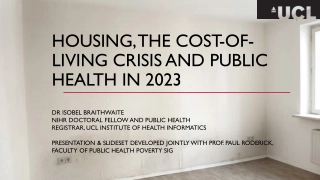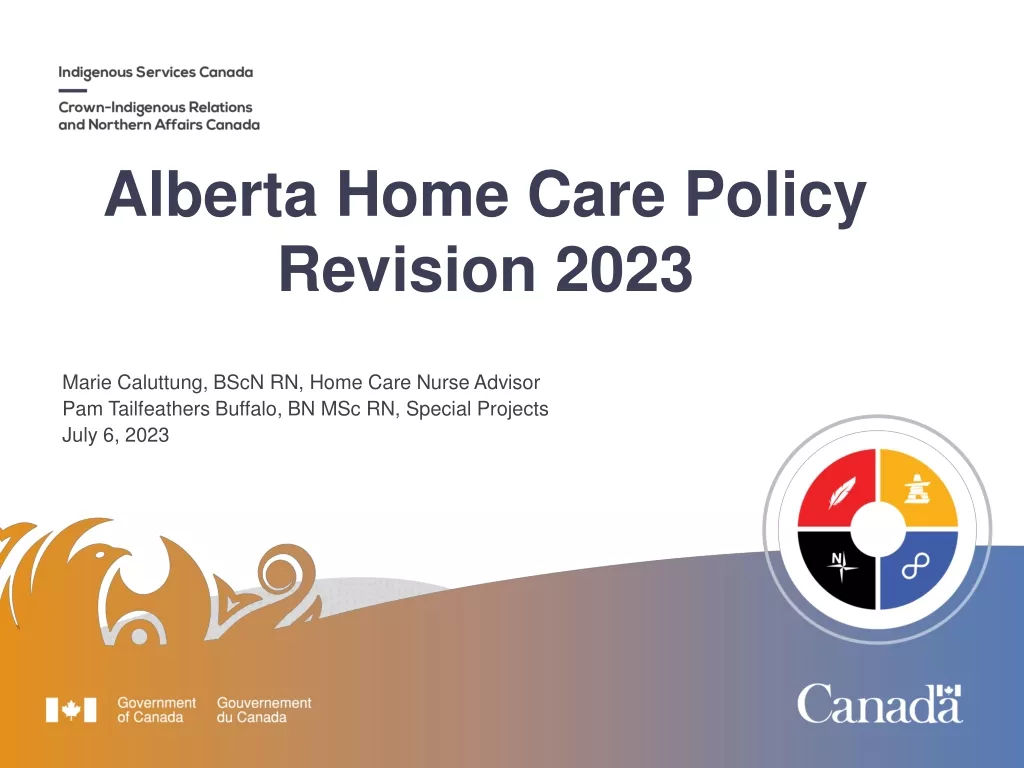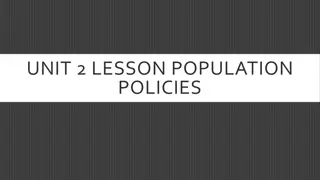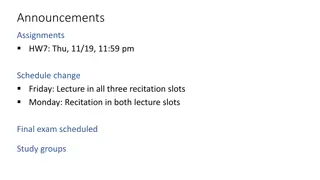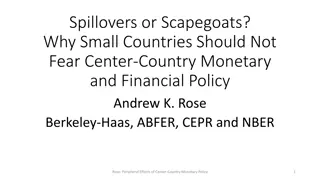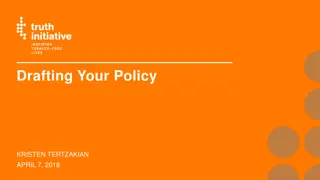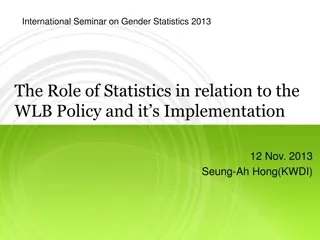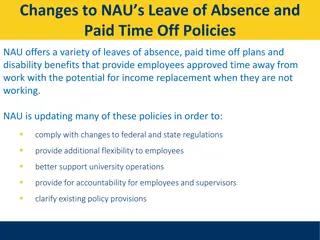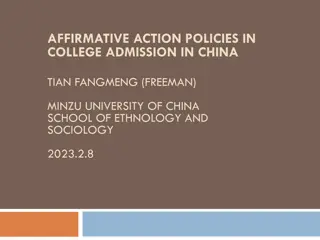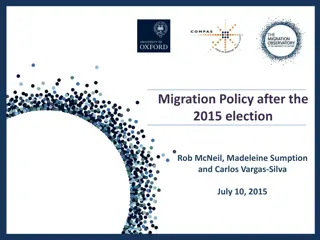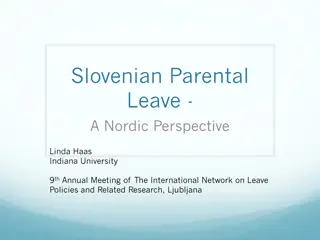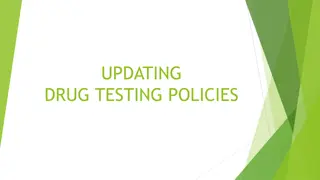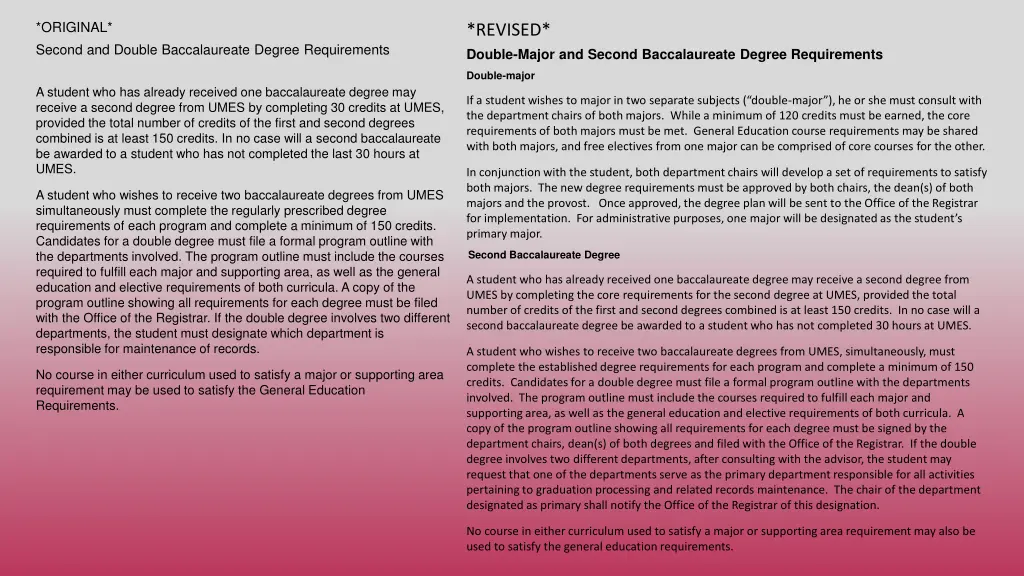
Baccalaureate Degree Requirements and Options at UMES
Learn about the requirements and options for pursuing a double major or a second baccalaureate degree at UMES. Discover how students can fulfill the necessary credits and core requirements, consult with department chairs, and obtain approval for their chosen pathways from relevant authorities.
Download Presentation

Please find below an Image/Link to download the presentation.
The content on the website is provided AS IS for your information and personal use only. It may not be sold, licensed, or shared on other websites without obtaining consent from the author. If you encounter any issues during the download, it is possible that the publisher has removed the file from their server.
You are allowed to download the files provided on this website for personal or commercial use, subject to the condition that they are used lawfully. All files are the property of their respective owners.
The content on the website is provided AS IS for your information and personal use only. It may not be sold, licensed, or shared on other websites without obtaining consent from the author.
E N D
Presentation Transcript
*ORIGINAL* Second and Double Baccalaureate Degree Requirements *REVISED* Double-Major and Second Baccalaureate Degree Requirements Double-major A student who has already received one baccalaureate degree may receive a second degree from UMES by completing 30 credits at UMES, provided the total number of credits of the first and second degrees combined is at least 150 credits. In no case will a second baccalaureate be awarded to a student who has not completed the last 30 hours at UMES. If a student wishes to major in two separate subjects ( double-major ), he or she must consult with the department chairs of both majors. While a minimum of 120 credits must be earned, the core requirements of both majors must be met. General Education course requirements may be shared with both majors, and free electives from one major can be comprised of core courses for the other. In conjunction with the student, both department chairs will develop a set of requirements to satisfy both majors. The new degree requirements must be approved by both chairs, the dean(s) of both majors and the provost. Once approved, the degree plan will be sent to the Office of the Registrar for implementation. For administrative purposes, one major will be designated as the student s primary major. A student who wishes to receive two baccalaureate degrees from UMES simultaneously must complete the regularly prescribed degree requirements of each program and complete a minimum of 150 credits. Candidates for a double degree must file a formal program outline with the departments involved. The program outline must include the courses required to fulfill each major and supporting area, as well as the general education and elective requirements of both curricula. A copy of the program outline showing all requirements for each degree must be filed with the Office of the Registrar. If the double degree involves two different departments, the student must designate which department is responsible for maintenance of records. Second Baccalaureate Degree A student who has already received one baccalaureate degree may receive a second degree from UMES by completing the core requirements for the second degree at UMES, provided the total number of credits of the first and second degrees combined is at least 150 credits. In no case will a second baccalaureate degree be awarded to a student who has not completed 30 hours at UMES. A student who wishes to receive two baccalaureate degrees from UMES, simultaneously, must complete the established degree requirements for each program and complete a minimum of 150 credits. Candidates for a double degree must file a formal program outline with the departments involved. The program outline must include the courses required to fulfill each major and supporting area, as well as the general education and elective requirements of both curricula. A copy of the program outline showing all requirements for each degree must be signed by the department chairs, dean(s) of both degrees and filed with the Office of the Registrar. If the double degree involves two different departments, after consulting with the advisor, the student may request that one of the departments serve as the primary department responsible for all activities pertaining to graduation processing and related records maintenance. The chair of the department designated as primary shall notify the Office of the Registrar of this designation. No course in either curriculum used to satisfy a major or supporting area requirement may be used to satisfy the General Education Requirements. No course in either curriculum used to satisfy a major or supporting area requirement may also be used to satisfy the general education requirements.
Transfer Credit *Revised* *ORIGINAL* Transfer Credit Transfer of General Education Students transferring from Maryland institutions of higher education who have completed the general education requirements at the sending institution shall have met the general education requirements at UMES, except in cases where UMES requirements significantly differ from the sending institution. When the general UMES education requirements significantly differ, the transfer student may be required to take up to 16 additional credit hours. The additional courses will be applied to the evaluation in accordance with the specific requirements of the UMES degree. For further details on the course transfer policy, see Appendix 1. Transfer of General Education Students transferring from Maryland institutions of higher education who have completed the General Education requirements at the sending institution shall have met the general education requirements at UMES, except in cases where the general education requirements at UMES exceed those of the sending institution. The transfer student will be required to take no more than the same number of general education credits required of the native student, and will not exceed an additional 10-16 credit hours. The additional courses will be according to the distribution requirements at UMES. For a detailed explanation on course transfer policy, see Appendix 1. TRANSFER FROM COLLEGES AND UNIVERSITIES Generally, college-level courses completed at regionally-accredited institutions will be acceptable and awarded transfer credit, provided the courses are similar in level, scope, content and expected learning outcomes, as determined by the department, to courses offered at the University of Maryland Eastern Shore with the minimum grade earned of D for general education courses, with the exception of English courses that require a minimum grade of C, and a minimum grade of C for major core and supportive courses. Examples of regional accrediting bodies include Middle States Association of Colleges and Schools, New England Association of Schools and Colleges and Southern Association of Colleges and Schools. The applicability of courses to the particular course of study at UMES will be determined by an academic advisor or chair in the office of the appropriate academic department. In accordance with state regulation, the University of Maryland Eastern Shore requires that a minimum of 120 semester hours be earned to award a baccalaureate degree. A maximum of seventy (70) credits will be accepted from an accredited two-year community or junior college. UMES does not limit the number of credits transferable for work completed at four-year colleges. UMES will only count 90 semester hours of transfer credit towards degree completion. Residency Requirement: Requirement to take 30 credits at UMES Transfer from Colleges and Universities Regardless of the total number of semester hours required for a degree program, all candidates for undergraduate degrees from the University of Maryland Eastern Shore must complete a minimum of 30 credits hours at UMES. A maximum of seventy (70) credits will be accepted from an accredited two-year community or junior college. UMES does not limit the number of credits transferable for work completed at four-year colleges. However, in order to graduate, a student must complete the last 30 semester hours at UMES. Acceptability of Undergraduate Transfer Credits The University of Maryland Eastern Shore typically does not award undergraduate transfer credit for courses that are pre-collegiate, remedial, vocational, technical, graduate or professional (e.g. law, medicine, dentistry, nursing). For a transfer course to receive credit, the course must be similar in level, scope, content and expected learning outcomes of courses offered at UMES, as determined by the department. Because they are not supervised by UMES faculty, other types of transfer courses that are not typically awarded transfer credit include independent study, internship, externship, practicum, or co-op work experiences. Maryland Community College Articulated Programs Maryland Community College Articulated Programs An articulated transfer program is a grouping of designated community college courses that best prepare the applicant for a particular course of study at the University of Maryland Eastern Shore. If the applicant successfully completes the courses specified in the articulated program guide, the applicant is guaranteed transfer with no loss of credit. Articulated career program guides also help students plan their new programs after changing career objectives. The guides are available at the Office of Undergraduate Admissions and Recruitment at the University of Maryland Eastern Shore and in the transfer advisor s office at each of the community colleges. Applicants can eliminate all doubt concerning transfer of courses by following programs outlined in the guide. An articulated transfer program is a list of community college courses that best prepare the applicant for a particular course of study at the University of Maryland Eastern Shore. If the applicant takes appropriate courses that are specified in the articulated program guide and earns an acceptable grade, he/she is guaranteed transfer with no loss of credit. Articulated career program guides help students plan their new programs after changing career objectives. The guides are available at the Office of Undergraduate Admissions at the University of Maryland Eastern Shore and in the transfer advisor s office at each of the community colleges. Applicants can eliminate all doubt concerning transfer of courses by following programs outlined in the guide. Appealing Transfer Credit Denials Students may appeal transfer credit denials by submitting a written appeal to the Office of the Registrar. The appeal must include the student s name, ID#, major, contact information, and specific concerns, as it relates to the awarding of academic credit. The Office of the Registrar will send the appeal to the appropriate academic department for review. That reviewing academic unit will render a decision and return it to the Registrar's Office for implementation. Credit from Other Universities and Colleges For general education courses, the appeal will be routed to the faculty member designated by the Office of the Provost to render decisions in cases of appeal. In case of an appeal of a course that is within a student s major, the Office of the Registrar will forward the appeal to the department chair of the respective academic department for review and decision. The Department Chair, with the advice of relevant faculty, will make the final determination regarding the status of the appeal. In most cases credit will transfer from institutions of higher education accredited by a regional accrediting association (e.g., Middle States Association of Colleges and Schools; New England Association of Schools and Colleges; North Central Association of Colleges and Schools; Northwest Association of Schools and Colleges; Southern Association of Colleges and Schools; Western Association of Schools and Colleges), provided that the course is completed with at least a grade of C and the course is similar in content and level to work offered at UMES. The applicability of these courses to the particular course of study at UMES will be determined by an academic advisor/evaluator in the office of the appropriate department. In case of an appeal of a course that is within a student s minor, the Office of the Registrar will forward the appeal to the department chair of the respective academic department for review and decision. The Department Chair, with the advice of the relevant minor advisor, will make the final determination regarding the status of the appeal. Course Substitution A course substitution request is made when a student desires to substitute one course for a required course when a clear relationship exists between the two. An approved course substitution will apply to the degree requirement(s), but will neither change the course prefix and number on a transcript, nor alter the GPA. A lower-level course may substitute for an upper-level course requirement, but will not contribute to the total number of upper-level credit hours completed. 1. Requests for course substitution and/or waivers will be considered on a case by-case basis. 2. The University will not grant a course substitution and/or waiver if doing so would fundamentally alter the nature of the student s program of study, resulting in the lowering of the university s academic standards, as determined by the department chair. Appealing Credit Denials 3. A waiver will be granted in the rare case in which the requirements for a substitution are met, but there is no appropriate alternative course available. In such an instance, the university may require the student to fulfill the course requirements through an alternative method to ensure that the student satisfies the general education competencies. Students may appeal credit determinations by submitting a written appeal to the Office of the Registrar. The appeal must include the student s name, ID#, major, contact information, and specific concerns as it relates to the awarding of academic credit. The Office of the Registrar will review the appeal and render a decision for general education courses. For non-general education courses, the Office of the Registrar will forward the appeal to the respective academic department for review and an articulation decision. In the event a consensus is not reached between the Registrar and Departmental review, the Office of the Provost will make the final decision regarding the awarding of credit. The decision will be communicated in writing by the Registrar to the student within ten business days after receipt of the appeal. 4. Substituting or waiving a specific course does not reduce the number of credits required for completion of a degree program. Students must earn the full number of credits required by their programs in order to graduate. 5. Students must follow the steps outlined in this policy to request course substitutions and/or waivers at the university. Once the course substitution and/or waiver has been requested by the advisor, the student must meet with his or her advisor, who will initiate the course substitution e-form process. The e-form must be submitted to the department chair who will determine whether the requested substitution is appropriate. 6. Each course substitution and/or waiver request will be considered and approved or denied in light of a student s current course of study. As a result, if a student changes majors and/or minors following receipt of a course substitution and/or waiver, a student will be required to resubmit a request for substitution and/or waiver, beginning with scheduling a meeting with the department chair. 7. Students should be aware that the university may not accept a course waiver and/or substitution approved by another college or university. Additionally, course substitutions and/or waivers granted at UMES may not be accepted by other institutions of higher education.
*ORIGINAL* Repeating of Classes *REVISED* Policy on repeating failed courses at non-UMES institutions: If a student fails a course at UMES, he or she may retake the course at another institution, with prior approval of the student s advisor, department chair and the dean. This approval process will determine whether the repeated course can be used to satisfy a major, general education or degree requirement. Credits earned at another institution transfer without a letter grade. If a student earns a passing grade it will be recorded on their UMES transcript as satisfactory (S) and neither replaces the grade earned at UMES, nor impacts the student s GPA. Courses taken through inter-institutional enrollment are treated as if they were taken at UMES and will have letter grades that impact the student s GPA. Any course may be repeated, but if a student repeats a course in which he or she has already earned a passing grade, the subsequent attempt shall not increase the total hours earned toward the degree. Credits for repeated courses will be counted only once toward graduation requirements and in computation of the cumulative grade point average. Only the highest grade will be used in the computation of the cumulative grade point average; however, all grades earned remain on the permanent record with repeated courses identified. Repeat credits and corresponding grades are used when computing the semester grade point average. If a course a student wishes to repeat has been discontinued or has not been offered for two semesters, the student should request the department Chairperson and Dean to designate a substitute course, which when taken, will remove the grade of the discontinued course. Courses failed at UMES with the grade of F or D should be repeated at UMES. The course so named and the student involved should be reported in writing to the Office of the Registrar. UMES Fin Aid Policy on Repeated course applies to courses taken at UMES. Fin Aid has reviewed and approved. Only in extenuating circumstances will the Provost and Vice President for Academic Affairs consider requests to repeat a course at a USM institution that was failed at UMES. In this case, the department chair of the failed course will need to certify the equivalency of the course at the other institution and communicate this in writing to the Provost and Vice President for Academic Affairs. Academic departments have the prerogative to limit the number of times a student may attempt to successfully complete major core courses.
Academic Probation & Dismissal Policy *REVISED* Academic Dismissal and Reinstatement When a student is academically dismissed from UMES, he/she is not eligible to register with any campus or program of the University System of Maryland. To become eligible for registration once again, he/she must complete and file the Application for Reinstatement. For students who have sat out a semester or more and not currently enrolled, applications should be received by the following deadlines: Fall Semester Spring Semester Applications received after the deadline indicated above will be considered for the next session. Applications may be obtained online at www.umes.edu/registraror by writing to the Office of the Registrar, Student Developmentand Cultural Center, University of Maryland Eastern Shore, Princess Anne, Maryland 21853. Deadlines for reinstatement applications will be indicated within the dismissalletter for currently enrolled students who are placed on dismissalat the end of a semester. A student wishing to transfer to another program at UMES must wait until reinstatement has been granted before applying for admission to that program. The UMES AcademicDismissaland Reinstatement Appeals Committee will not normally grant reinstatement until at least one semester has elapsed from the time of the student sdismissal. A student who is reinstated after academic dismissalwill be on academicprobation. The same conditions of probationmay be imposed on any student who seeks admission by transfer from another university or collegeand whose record at the previous school warrants this action. Any appeal concerning the regulations governing academicprobationor academicdismissalshall be directed to the University s Academic Dismissaland Reinstatement Appeals Committee, which is empowered to grant relief in unusual cases if the circumstances warrant such action. No student on academic probationis permitted to register for more than thirteen (13) semester hours. The student on academicprobationshould carry twelve (12) academic semester hours in order to absolve academicprobationin one semester. Students on probationare urged to work with a faculty advisor before registering in order to take full advantage of the exceptionsand special provisions. Classification Class standing for purposes of taking upper level courses, voting in Student Government Association (S.G.A.) elections, selective service reports, etc., is determined on the following scale: *ORIGINAL* DRAFT Academic Probation & Dismissal Policy Good Academic Standing Students are considered to be in good academic standing and performing satisfactorily at UMES if their cumulative GPA is at least 2.0. Unsatisfactory Performance: Total Hours Cum. GPA is GPA is in the range Academic Dismissal If Academic Probation If Cum. Attempted 1-24 1.549 or below 1.550 to 1.999 25-48 1.699 or below 1.700 to 1.999 49-73 1.799 or below 1.800 to 1.999 74 and above 1.949 or below 1.950 to 1.999 All credit hours transferred to UMES are included in the Total Hours attempted in the first column of the above table when determining the category of academic performance. The cumulative GPA is computed by using: 1. The number of credit hours attempted at UMES and corresponding grades earned, and 2. Credit hours attempted elsewhere within the University System of Maryland and the corresponding grades earned, when the grades also transfer to UMES. If the grades do not transfer, the hours are not used in computing the GPA. Earned Credit Hours Level 0-27 Freshman Academic Probation Students whose UMES cumulative grade-point average is less than 2.0 will be placed on academic probation. Students who have not returned to good academic standing after two semesters on academic probation will be dismissed. Good academic standing requires a cumulative GPA of at least 2.0. 28-55 Sophomore 56-83 Junior 84 and above Senior
Academic Dismissal and Reinstatement (Continued) *ORIGINAL* Academic Probation & Dismissal Policy (Continued) *REVISED* Students should complete the general education courses and earn 56 academic hours before they enroll in upper level courses. Academic Standing Good Academic Standing Students are considered to be in good academic standing and performing satisfactorily at UMES if their cumulative GPA is at least 2.0. Unsatisfactory Performance Students on academic probation may register for no more than 13 credit hours per semester. Course selection must be approved by the department chair or academic advisor. Students on academic probation may not elect to take any courses on a pass/fail basis if the courses are offered for a grade. Students on academic probation are required to participate in all academic support programs offered specifically for students on academic probation, such as the FOCUS program provided by the Center for Access and Academic Success. Total Hours AttemptedAcademic Dismissal If AcademicProbationIf Cum. GPA is in the range Students who have not returned to good academic standing after two semesters on academic probation will be dismissed. Cum. GPA is 1-24 1.549 or below 1.550 to 1.999 25-48 1.699 or below 1.700 to 1.999 Academic Dismissal No student will be placed on academic dismissal prior to placement on academic probation for at least one semester. The first semester a student fails to achieve good standing status that student will be placed on academic probation. 49-73 1.799 or below 1.800 to 1.999 74 and above 1.949 or below 1.950 to 1.999 All credit hours transferred to UMES are included in the Total Hours Attempted in the first column of the above table when determining the category of academic performance. The cumulative GPA is computed by using the number of credit hours attempted at UMES and corresponding grades earned, and the credit hours attempted elsewhere within the University System of Maryland and the corresponding grades earned, when the grades also transfer to UMES. If the grades do not transfer, the hours are not used in computing the GPA. Students who do not return to good academic standing after a second semester (fall or spring) on academic probation may remain on academic probation for an additional semester, provided that they satisfy one of the following conditions: 1. Their cumulative GPAs are greater than or equal to the appropriate minimums in the chart that follows, or 2. They earn semester (or term or session) GPAs of at least 2.0. Academic Probation Any student will be placed on academic probation if he/she 1. fails to maintain the cumulative grade point average consistent with the number of credit hours attempted, or 2.has been reinstated to the University following academic dismissal. Students dismissed one time will be permitted to appeal the dismissal. Students dismissed for a second instance, however, will not be permitted to appeal the dismissal and instead, will not be permitted to enroll for a minimum of two academic years. The following are the options for students who were dismissed from the University because they did not achieve good academic standing: 1. A student who attends another post-secondary institution as a full-time student may apply for reinstatement at UMES. To apply for reinstatement, the student must provide a transcript from the other post-secondary institution to demonstrate that they have made academic progress sufficient to indicate that the student can be successful at UMES. Students on academic probation are restricted to no more than thirteen (13) credit hours per semester and are required to repeat all courses in which deficiencies have been received, as scheduling allows. Students on academic probation are required to participate in prescribed academic crises intervention programs and activities provided by the major department and/or UMES Center for Access and Academic Success. Students must abide by ALL regulations during the entire period of academic probation. 1. A student who chooses not to attend another post-secondary institution but can demonstrate evidence of good academic promise may apply to UMES for reinstatement after a period of two years. If reinstated the student must achieve good academic standing status within two semesters (fall and spring).
Academic Dismissal and Reinstatement (Continued) *ORIGINAL* Academic Dismissal Students matriculating as first time freshmen will not be academically dismissed at the end of their first semester regardless of cumulative grade point average or number of credit hours earned. Beginning with their second semester, such students will be subject to the standards given in the table above. A student, other than a first semester freshman, will be academically dismissed if he/she fails to maintain the cumulative grade point average consistent with the number of credits attempted, or falls in the category of Academic Probationfor two consecutive semesters. A student who has been academically dismissedand who is reinstated will still be subject to the standards given in the unsatisfactory performance table. For example, a student will be academically dismissed again at the end of the first semester after reinstatement if he/she remains in the AcademicDismissalcategory. Reinstatement Following Academic Dismissal When a student is academically dismissed from UMES, he/she must complete the Application for Reinstatement prior to the desired date of reinstatement. Reinstatement will not normally be granted by the UMES Academic Appeals Board until at least one semester has elapsed from the time of the student sdismissal. Reinstatement is not automatic; however, if the Application for Reinstatement is denied, a student may again apply for reinstatement after a lapse of an additional semester. Upon being reinstated following Academic Dismissal, the student will be placed on AcademicProbationand will be subject to the conditions of Academic Probation. Any appeal concerning the regulation governing academic probationor academicdismissalshall be directed to the School s specific Academic Appeals Board, which is empowered to grant relief in unusual cases if the circumstances warrant such action.

